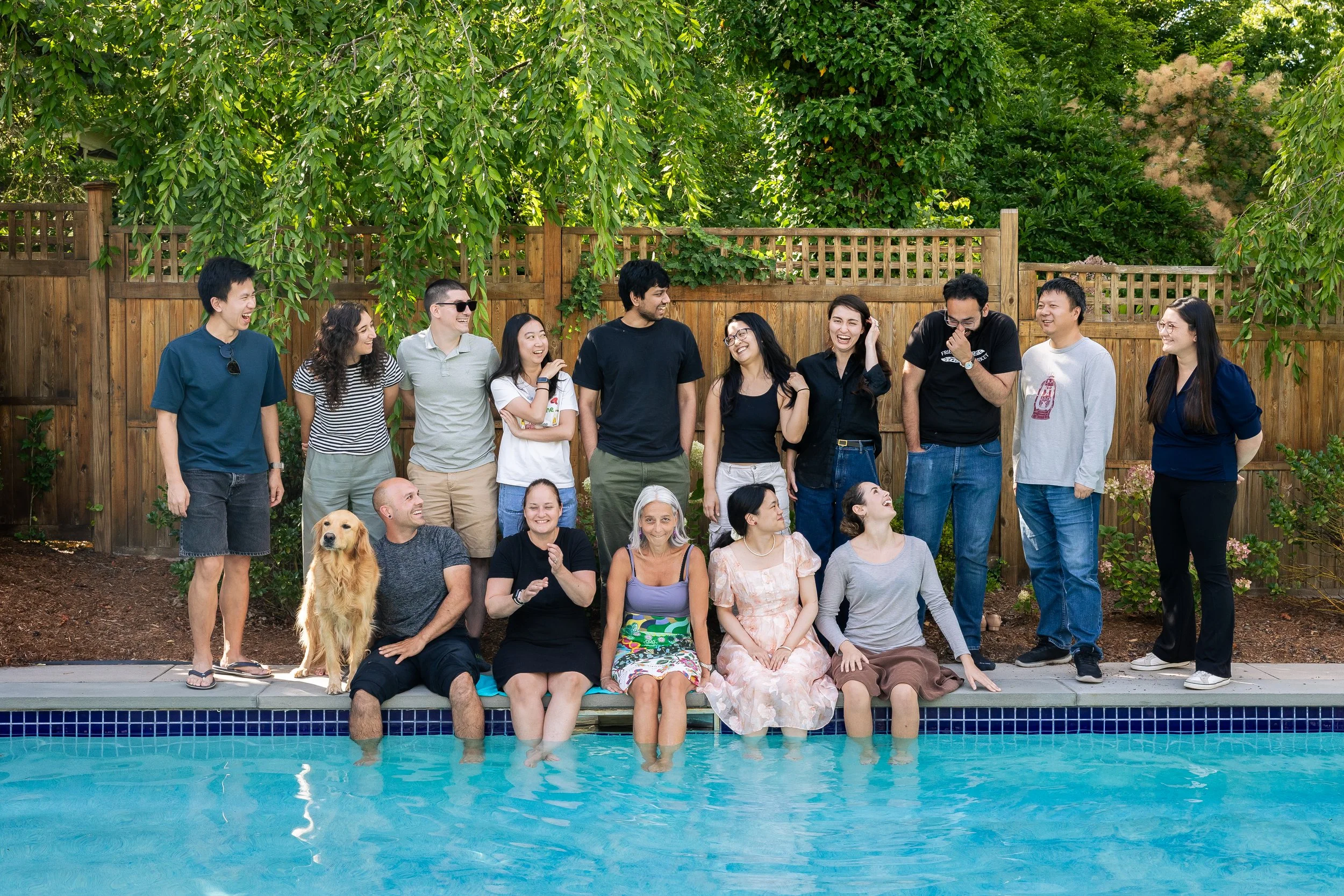
Mentorship
Mentorship is central to my self-image as a scientist, and I (Valentina) have committed myself to improving the quality of my own mentoring and that of my colleagues in the Genetics Department. I measure success by my mentees’ well-being and integration within the lab, and I find that the discoveries, papers, and grants follow.
For over one decade as a PI, I and a group of my peers have been learning and applying concepts and strategies from organizational psychology to our approach to leading our labs. (Greco V 2014 MBoC, Greco V 2016 MBoC; Greco V et al 2022, Current Biol) Many of these principles revolve around recognizing the central role that organization structure and culture plays in the health and success of our labs.
Our labs are made up of individuals each with their own unique life experiences and identities. One of the central tasks of a lab leader is to foster a system in which 1) each individual is valued for his or her strengths and weaknesses and 2) the PI is committed to soliciting and responding to lab members’ feedback on important lab decisions. Only when we view everyone, regardless of position within the inevitable hierarchy, as a contributor to the organization can we effectively respond to the changing needs of the group and advance our science in a way that is personally fulfilling as well as professionally rewarded.
Central to this perspective is an acknowledgment that the PI must balance business (producing data, ideas, and papers; giving visibility to those products; and raising funding) with mentoring (guiding lab members’ professional and scientific development). These two goals can be powerfully integrated: mentoring can bring depth and quality to business, and business can bring effectiveness and productivity to our mentoring.
Mentorship structures and research project processes
Within my lab, my goal is to foster an environment in which mentees generate ideas and learn to navigate research from initial excitement through publication. Each mentee goes through their own unique journeys, but generally follow a pattern of beginning in exploration, narrowing in on novel findings by deepening analyses, and finally crafting a compelling narrative for publication.
We recently discussed this “emotional climate of research projects” collectively in lab meeting. We all bring our whole, human selves to our science, and the processes of science bring many stresses, opportunities, and emotions. I work with individual lab members, create larger structures within the lab, and connect us to outside resources to help us all weather those parts of the research process that are harmful and also to harness those parts of the research process and the emotional experiences that help us grow.
To support the growth of trainees through this journey, I have established additional forums beyond weekly one-on-one meetings and lab meetings to accelerate the preparation of manuscripts and enhance collaborations between lab members.
Brainstorming Sessions/Chalk Talks
One lab member presents an overall vision of their current project and future directions without slides or data. This sharpens the speaker’s vision and prepares them for future academic job interviews, and promotes the cohesion and scientific literacy of the entire group.
Six-Month Broad Review
In addition to weekly one-on-one meetings, every six months I spend four to five hours with each individual, discussing and aligning my and my mentee’s short- and long-term goals of our partnership, and discussing all the data produced and future plans.
6-month Review
Annual Lab Retreat
Every year, all lab members come together in a 2-3 day team event to stretch our creativity, generate new ideas, and strengthen lab unity and synergy. Before the event, we spend time designing the retreat based on the current composition and needs of the lab and use the event to renew our core values and our commitment to them.


